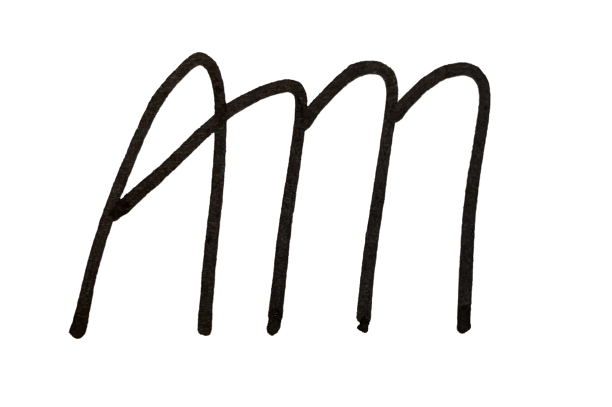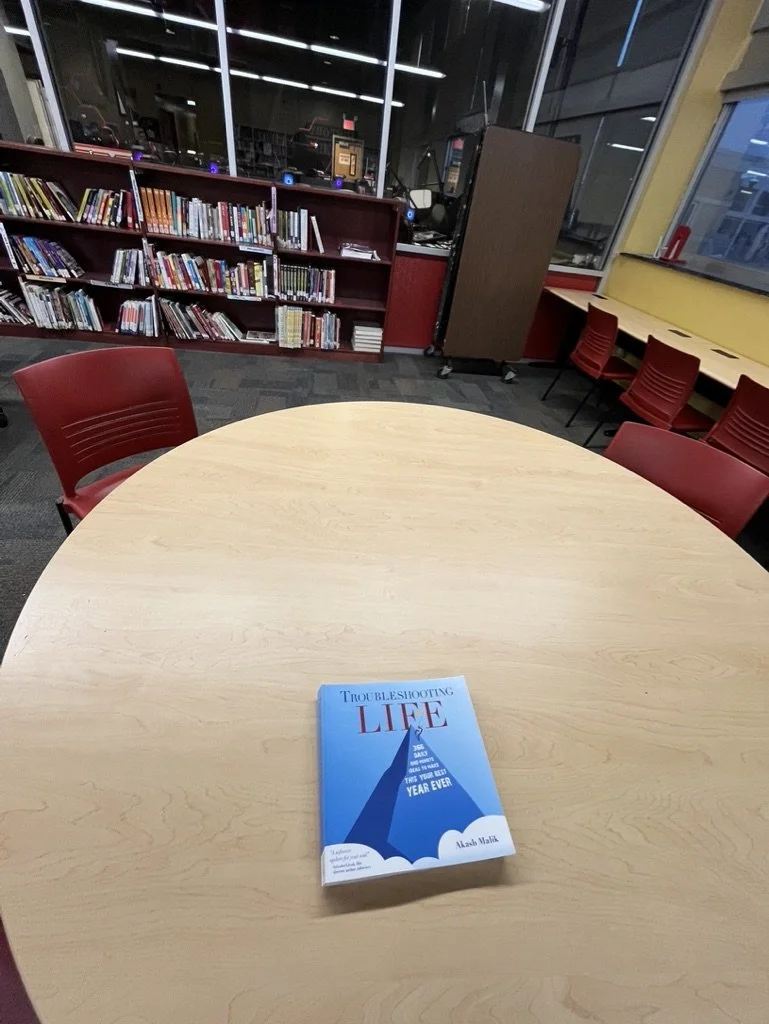9 Frequently Asked Questions (FAQs) About My Debut Book Troubleshooting Life
Available at Amazon here, Barnes and Noble here.
9 Frequently Asked Questions (FAQs)
Q1: How did you find the time to write a 366-page book while working full-time?
That’s a really good question. I didn’t write this book all at once, in one day, in one long bender. This book came from a diary I kept during a pandemic career pivot. This book is full of wisdom I compiled during that time, from sources as diverse as
Stoic philosophy
Steve Jobs
Martin Scorsese
Technical Training at Per Scholas
Personal Life Experiences
Writing this book taught me to find joy in actually posting a thing in the world that makes a positive change in 2026 and beyond.
Q2: Was it hard to stay disciplined for a book that is over 400 pages long?
It was! But in doing so, I discovered this irony.
Discipline can give you freedom.
Disciplined journaling helped me harness and focus my daily energy budget more effectively.
As a manager, you may understand this “energy budget”.
You use management energy at your company, school, hospital, agency, and so on.
No matter where you are, you manage to produce results.
• Economic performance
• Student learning
• Patient care.
If these results are not produced, the institution will not exist much longer, will it?
By articulating with words the mission of the organization I work for to myself, and also my personal mission with Troubleshooting Life, I found my north star in moments I started losing my way.
This also applies to meetings that start to lose their way too: it helps if someone is taking notes! By taking notes in a meeting, you can refer back to key questions asked during the meeting.
AI note taking can be perceived as more efficient, but writing or typing the notes has the cognitive benefit of reinforcing my memory and understanding of the meeting, and what I need to do next.
There’s also multiple cybersecurity concerns around these AI note taking tools. Read.ai, Zoom AI, etc, have multiple security and privacy concerns:
University of Memphis (https://blogs.memphis.edu/cio/2024/10/29/read-ai-termination-for-university-users/ )
Chapman University (https://blogs.chapman.edu/information-systems/2025/08/13/security-notice-regarding-read-ai/ )
University of North Carolina Greensboro (UNCG) (https://its.uncg.edu/read-ai-to-be-disabled-at-uncg-monday-august-18/ )
University of Washington (https://it.uw.edu/guides/security-authentication/read-ai-deactivation/ )
Yale University (https://yale.service-now.com/it?id=kb_article&sysparm_article=KB0026886 )
Q3: Did you ever feel like giving up during the process?
All the time! I felt like giving up constantly, but I did not give up. I knew I had something I needed to say.
There were patterns that I was able to identify not only in ancient wisdom, but also in modern living, and it took took years for me to write this book in a pandemic.
You can’t connect the dots looking forward, you can only connect them looking backwards. I started seeing a lot of people get laid off in 2023. That was when I started taking my hundreds of diary pages, and found a book in them.
My mental health was already in a negative state in 2019. It took me time to recover through disciplined writing, working with staff and learners at Per Scholas , and helping people all over the U.S. that I was able to find the fuel to get me through every moment I felt stuck.
Q4: How long did it take you to write your debut book, from start to finish?
Between March 2020 and August 2025 was when I did a lot of writing and editing for Troubleshooting Life. I did use some material from my time in high school and college as well. Let’s say a little over five years!
Q5: What made you choose the “page-a-day” format?
To be honest, I have a TikTok sized attention sitting here in 2025. The page-a-day format helps keep me focused on making complex ideas seem simple to understand within like, 250 words or less a day. I like to call it “bite-sized wisdom.”
As Martin Scorsese says, “there’s no such thing as simple. Simple is hard.” People often think simple is quick or easy, but it is actually a lengthy process to edit a draft down to the most refined, essential version of what it needs to be. Simple can actually be incredibly difficult to achieve.
When it comes to creative endeavors such as film editing, writing, design, or problem-solving, achieving simplicity requires a deep understanding of a subject, which is an iterative process over YEARS to strip away unnecessary details, but not lose the core.
Q6: What inspired the title “Troubleshooting Life”?
From 2019-2022, I reread the 28 lectures from Mike Meyers’ CompTIA A+ 1000 series textbook multiple times.
That word “troubleshooting” came up often. It became a word I started using outside of tech as well.
It was fun to say, and visually rich: you have trouble? Shoot it in the face, like a cowboy from a John Wayne Western (which I also write about)!
Troubleshooting Life was born in the COVID pandemic, December 2021, when I wrote it to myself in my digital diary.
I went to college, worked in a dying legacy media industry being disrupted by social networks, and eventually got humbled enough to change careers and enroll in Per Scholas, where I learned more about IT careers and helped hundreds adults do the same.
Those hard times throughout my mid-20s were made possible because I kept multiple journals.
The journals helped me process my thoughts and feelings. Dumping everything on a page helped me find my “reasoned choice,” prohairesis in Greek. (https://en.wikipedia.org/wiki/Prohairesis)
I thought I was a loser. I thought my best work was behind me. But I was wrong! Somehow, in the hundreds of pages of my diary and notes, I found bits and pieces of writing that I thought could be helpful to others, and that became Troubleshooting Life.
Q7: Why release the book now, in 2025?
This books is being released in September 2025 to prepare people for the calendar year 2026 and beyond. This world is full of problems. Batman isn’t here to troubleshoot, YOU are.
Every day, every year. With a book like this, people can feel like it’s “happy new year” ANY day of the year they happen to read Troubleshooting Life.
When I was 23, I burned through my savings. I moved back in with my parents in New Jersey. I interviewed constantly in New York in 2019. I was so lucky I got this job at Per Scholas during COVID-19. I am lucky I did NOT DIE from coronavirus.
I was able to write and study after work between March 2020 and August 2025. This book doesn’t always dive deep, but it is wide in breadth. I hope the reader of this book used the margins to take lots of notes, like a student in the classroom of life.
I have helped a great deal of learners virtually through my teaching and nonprofit management work at Per Scholas. I feel giving the world this book, born of my diary, is another great medium to help more people.
Q8: What do you hope readers will do after finishing the book?
I sincerely hope one person starts keeping a journal after reading this book. I hope people reread this book. Even one page a day can make a difference.
James Clear writes about how “atomic habits” can help you move toward your goal. Reading as little as one page a day can make a difference.
In Chanakya Neeti, Chanakya writes: “Never let any day go without some study of a written word. One should make one’s day fruitful by doing good work and study.”
Q9: What surprised you most about the publishing process?
I was surprised how much I enjoyed working with Highpoint on this project between 2023 and 2025. The book professionals at Highpoint are all nice people who love to work with authors. People may think book publishers are fast-talking, manipulative characters, but that is not true to the experience I had!

